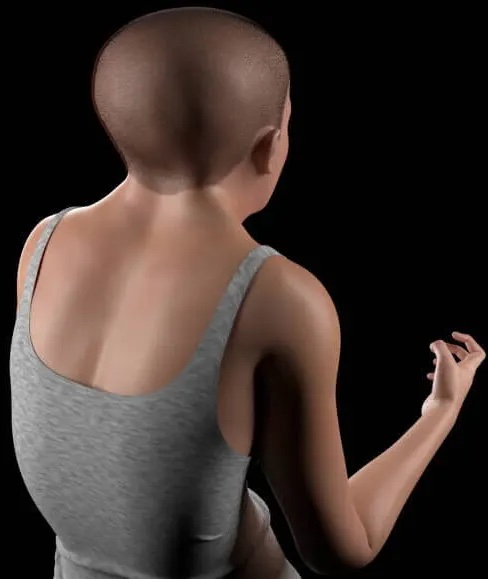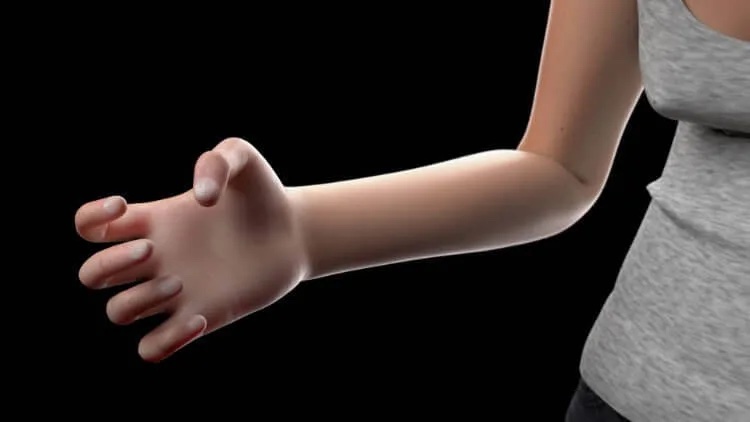Mindy has, among other things, a second eyelid
WeGoViral Future:
HUMP, CLAW-THUMBS, SECOND EYELID
All day long on a smartphone, computer, or tablet: that leaves a mark. While many people already suffer from cell phone necks, mouse arms, and SMS thumbs, the permanent use of digital technologies could have an enormous physical impact in the long term.
Experts have created a model called Mindy using artificial intelligence. It is intended to give an impression of what humans might look like in the year 3000.
"We took scientific research and expert opinions on the subject to create a future human with a 3D designer whose body has physically changed due to the consistent use of smartphones, laptops, and other technology," explains the American telecommunications provider Mindy has developed.
And this is what Mindy looks like. She has …

... a hump
The cited experts are convinced that looking at our phones for centuries will eventually lead to a stooped posture. "Sitting in front of the computer for hours means that the upper body is pulled in front of the hips and not straightened out," explains health expert Caleb Backe.
...a clawed thumb
The constant holding of smartphones is also said to favor the development of claw-like hands.

... a protruding neck
Mindy also has a thicker neck. "The neck muscles have to contract to keep your head upright when you look down to use a laptop or phone," says Dr. K.Daniel Riew. Accordingly, the muscles would adapt to this position over the course of evolution.
... a 90-degree elbow
According to experts, people could also suffer from "smartphone elbow." Our arms would therefore be permanently at a 90-degree angle due to the typical positioning of the hands.
... a thicker skull
In addition, it is assumed that permanent exposure to mobile phone radiation also leads to changes in our heads. That's why Mindy has a thicker skull. It is believed that this changes accordingly to protect the brain from mobile phone radiation.
... a second eyelid
Mindy also has a second internal eyelid. According to this, researchers believe one develops to protect the eyes from excessive exposure to light from technical devices over time.
Kasun Ratnayake of the University of Toledo said humans could even evolve a lens that "blocks incoming blue light."